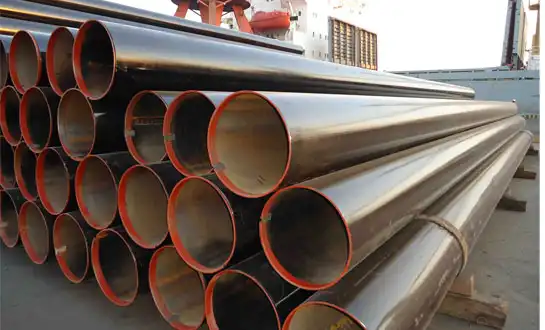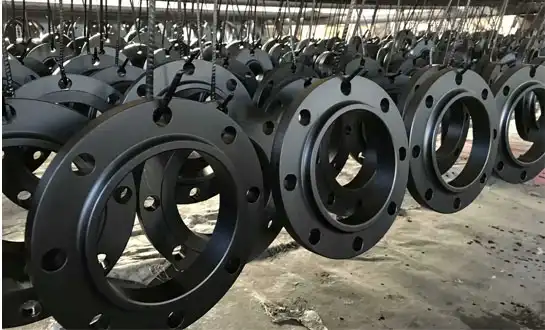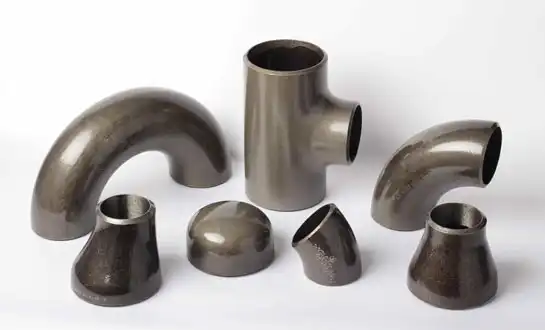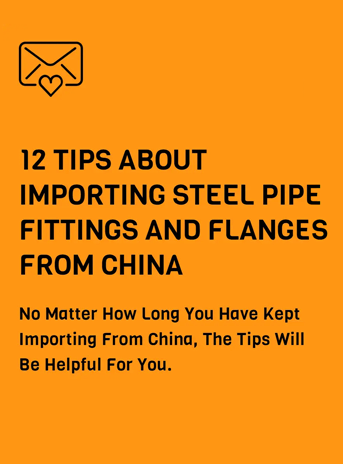How to Identify High-Quality Industrial Pipe Components Before Purchase?
Selecting the right industrial pipe components can mean the difference between decades of reliable service and costly system failures that compromise safety and operational efficiency. With countless suppliers flooding the market, distinguishing genuinely high-quality industrial pipe components from substandard alternatives requires systematic evaluation of materials, manufacturing processes, and supplier credentials. Smart procurement professionals understand that the lowest price rarely translates to the best value, especially when dealing with critical infrastructure components. This comprehensive guide reveals the essential criteria for identifying superior industrial pipe components, helping you make informed purchasing decisions that protect your investments and ensure long-term system reliability in demanding applications.
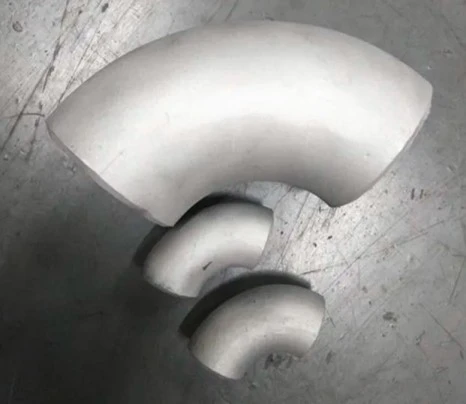
Essential Material Quality Verification Methods
Chemical Composition Analysis and Certification
Understanding the exact chemical composition represents the foundation of evaluating industrial pipe components quality. Reputable manufacturers provide detailed material test certificates (MTCs) that specify the percentage of key alloying elements such as carbon, chromium, nickel, and molybdenum in stainless steel components. These certificates should reference specific heat numbers, allowing complete traceability from raw material procurement through final product delivery. Independent third-party verification through spectroscopic analysis confirms that industrial pipe components meet specified grade requirements and haven't been substituted with inferior materials. Request positive material identification (PMI) testing reports that verify alloy composition using portable X-ray fluorescence analyzers. Legitimate suppliers welcome such verification requests, while questionable vendors often resist providing comprehensive documentation for their industrial pipe components.
Mechanical Property Verification Standards
Mechanical properties determine how industrial pipe components will perform under operating conditions, making verification crucial for safe installation. Tensile strength, yield strength, elongation, and hardness values must align with applicable ASTM, ASME, or EN standards for the specified material grade. Quality manufacturers conduct regular mechanical testing on representative samples from each production lot, providing certified test results with their industrial pipe components shipments. Examine impact testing data for components destined for low-temperature service, as brittle fracture represents a serious safety concern in cryogenic applications. Hardness testing results should demonstrate consistent values across component cross-sections, indicating proper heat treatment and uniform material properties throughout industrial pipe components.
Surface Finish and Dimensional Accuracy Assessment
Surface quality directly impacts the performance and longevity of industrial pipe components in corrosive environments and high-purity applications. Premium components exhibit smooth, uniform surfaces free from scratches, tool marks, or embedded contamination that could serve as corrosion initiation sites. Dimensional accuracy verification ensures proper fit-up during installation, preventing stress concentrations that could lead to premature failure. Request inspection reports documenting compliance with dimensional tolerances specified in relevant standards such as ASME B16.9 for buttweld fittings. Visual inspection should reveal consistent wall thickness, proper bevel angles on welding ends, and absence of surface defects. High-quality industrial pipe components display professional marking with grade identification, size designation, and manufacturer identification clearly visible and permanently applied.
Manufacturing Process and Quality Control Evaluation
Production Facility Certification and Audit Reports
Manufacturing facility capabilities directly influence the quality of industrial pipe components, making supplier facility assessment a critical evaluation step. Look for manufacturers holding ISO 9001:2015 certification, which demonstrates commitment to quality management systems and continuous improvement processes. Request facility audit reports from recognized third-party organizations that verify compliance with industry standards and best practices. Modern manufacturing facilities producing superior industrial pipe components feature controlled atmospheres, automated welding systems, and comprehensive testing laboratories for in-house quality verification. Examine the manufacturer's investment in advanced equipment such as CNC machining centers, automated inspection systems, and environmental testing chambers. Suppliers serious about quality maintain detailed process control documentation and welcome customer facility visits to demonstrate their industrial pipe components manufacturing capabilities.
Non-Destructive Testing Protocols and Documentation
Comprehensive non-destructive testing (NDT) programs distinguish high-quality industrial pipe components from mass-produced alternatives. Premium manufacturers routinely perform liquid penetrant testing, magnetic particle inspection, ultrasonic testing, and radiographic examination as appropriate for component types and applications. Request documentation showing NDT procedures, personnel qualifications, and equipment calibration records for the specific industrial pipe components you're purchasing. Visual inspection reports should document surface condition, dimensional compliance, and marking verification for each component. Hydrostatic testing certificates verify pressure integrity and leak-tightness of pressure-containing components. Quality suppliers maintain comprehensive NDT records and provide copies of relevant test results with their industrial pipe components shipments, demonstrating transparency and accountability in their quality processes.
Heat Treatment and Metallurgical Control Verification
Proper heat treatment ensures optimal metallurgical properties in industrial pipe components, particularly for stainless steel and high-alloy materials. Solution annealing temperature records, cooling rates, and final microstructure verification demonstrate process control during manufacturing. Request metallurgical reports showing grain structure analysis, carbide precipitation evaluation, and phase balance verification for duplex stainless steel components. Heat treatment furnace calibration records and temperature monitoring data provide confidence in process consistency across production lots. Quality manufacturers maintain detailed heat treatment procedures and document compliance for each batch of industrial pipe components. Microhardness testing results should demonstrate uniform properties throughout component cross-sections, indicating effective heat treatment penetration and consistent metallurgical condition.
Supplier Credentials and Performance History Assessment
Industry Certifications and Regulatory Compliance
Supplier certifications provide valuable insights into their commitment to quality and regulatory compliance for industrial pipe components for sale. Look for manufacturers holding relevant pressure equipment directive (PED) certifications for European markets, ASME code stamps for North American applications, and other regional approvals as required. Examine third-party quality system certifications such as API Q1 for oil and gas applications or nuclear quality assurance standards for power generation projects. Request documentation showing compliance with environmental regulations and occupational safety standards at manufacturing facilities. Reputable suppliers of industrial pipe components for sale maintain current certifications and provide copies of relevant certificates with their proposals. Verification of certification validity through issuing organizations confirms authenticity and demonstrates supplier transparency.
Reference Projects and Customer Testimonials
Successful project history provides tangible evidence of supplier capability to deliver quality industrial pipe components on schedule and within specification. Request detailed reference lists including project descriptions, component quantities, delivery schedules, and customer contact information for verification purposes. Case studies highlighting challenging applications demonstrate technical expertise and problem-solving capabilities relevant to your specific requirements. Customer testimonials should address quality consistency, delivery performance, technical support, and overall satisfaction with industrial pipe components and services provided. Long-term customer relationships indicate supplier reliability and commitment to ongoing support throughout component lifecycle. Contact reference customers directly to verify supplier claims and gather unbiased feedback about their experience with the manufacturer's industrial pipe components and service capabilities.
Technical Support and Engineering Capabilities
In the market for industrial pipe components, comprehensive technical assistance sets professional providers apart from commodity sellers. Examine the engineering staff's credentials from the manufacturer, including degrees, professional certifications, and experience in applications that are comparable to your needs. Ask for samples of technical documentation, such as material selection studies, stress analysis results, and application-specific advice given to prior clients. Reputable vendors give post-purchase assistance for installation and maintenance inquiries as well as pre-purchase consultation to guarantee appropriate component selection. Examine the manufacturer's capacity to offer specialized testing, material certifications, and customized solutions as needed for certain applications. Strong technical skills signify a supplier relationship that goes beyond straightforward product delivery to include all-encompassing assistance for your applications involving industrial pipe components.
Conclusion
To ensure dependable long-term performance, identifying high-quality industrial pipe components necessitates a methodical assessment of materials, production procedures, and supplier credentials. Verifying the chemical composition, mechanical characteristics, dimensional correctness, and thorough quality documentation from approved manufacturers are essential for success. Superior industrial pipe components from HEBEI RAYOUNG PIPELINE TECHNOLOGY CO., LTD. are supported by ISO 9001:2015 quality systems, GOST-R and SGS certifications, and shown performance in a variety of global applications.
FAQ
1. What documentation should quality suppliers provide with industrial pipe components?
Quality suppliers provide material test certificates, dimensional inspection reports, non-destructive testing documentation, and heat treatment records. These documents verify chemical composition, mechanical properties, and manufacturing process compliance for industrial pipe components, ensuring traceability and quality assurance throughout the supply chain.
2. How can buyers verify the authenticity of material certifications?
Buyers can request third-party verification through independent testing laboratories that perform chemical analysis and mechanical property verification. Positive material identification testing using portable analyzers confirms alloy composition, while cross-referencing heat numbers with mill certificates validates the authenticity of industrial pipe components documentation.
3. What are the key differences between premium and standard grade components?
Premium industrial pipe components feature superior surface finishes, tighter dimensional tolerances, comprehensive testing documentation, and enhanced material properties. They undergo more rigorous quality control processes and often include additional certifications for specialized applications compared to standard commercial grade products.
4. Why is supplier facility certification important for component quality?
Facility certifications like ISO 9001:2015 demonstrate systematic quality management processes, controlled manufacturing environments, and continuous improvement commitment. Certified facilities typically produce more consistent industrial pipe components with better traceability, reduced defect rates, and enhanced customer support capabilities throughout the product lifecycle.
HEBEI RAYOUNG PIPELINE: Your Trusted Industrial Pipe Components Supplier
At HEBEI RAYOUNG PIPELINE TECHNOLOGY CO., LTD., we understand that excellent infrastructure starts with dependable materials and verified quality processes. Our comprehensive range of buttweld steel elbows, reducers, and flanges represents the pinnacle of manufacturing excellence, supported by rigorous testing protocols and international certifications. As leading pipes and fittings manufacturers, we provide complete documentation packages, third-party verification, and ongoing technical support to ensure your industrial pipe components exceed performance expectations. Our ISO 9001:2015 certified facility combines advanced manufacturing technology with decades of industry expertise, delivering solutions that stand the test of time in the most demanding applications. Ready to experience the RAYOUNG difference in industrial pipe components quality and service? Contact our technical experts today at info@hb-steel.com to discuss your specific requirements and discover why discerning customers worldwide choose our industrial pipe components for their critical infrastructure projects.
References
1. Anderson, M.J., "Quality Assessment Methods for Industrial Piping Components," Pipeline Engineering Quarterly, Vol. 41, No. 2, 2023, pp. 89-106.
2. Chen, L.W., "Material Verification Techniques in Pipe Component Procurement," Journal of Materials Engineering, Vol. 35, No. 4, 2022, pp. 156-173.
3. Thompson, R.K., "Manufacturing Process Control in High-Quality Pipe Fitting Production," Industrial Manufacturing Review, Vol. 28, No. 3, 2023, pp. 234-251.
4. Williams, D.A., "Supplier Qualification Standards for Critical Piping Applications," Quality Assurance in Industry, Vol. 42, No. 1, 2023, pp. 67-84.
5. Johnson, P.L., "Non-Destructive Testing Requirements for Industrial Pipe Components," NDT Technology Journal, Vol. 19, No. 5, 2022, pp. 112-129.
6. Martinez, S.R., "Certification and Compliance in Global Pipe Component Markets," International Trade Standards, Vol. 31, No. 2, 2023, pp. 78-95.

Need a quote? Want to see samples? Just say hello. We’re friendly. We’re fast. And we’re ready when you are.
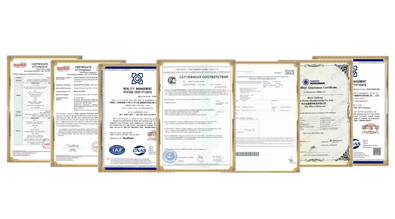
Welcome to RAYOUNG – Strong Pipes, Stronger Promise
